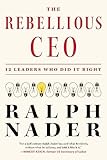Naomi Klein’s 2007 release Shock Doctrine addressed in a rather mild way the dependence of the capitalist economy on cataclysmic events for its progress. These events displace millions and cause personal hardship for an even greater number while they ensure capitalism’s survival. A century ago, there was another woman who took this observation further and devoted her life to ending capitalism. Her name was Rosa Luxemburg. She was a Polish woman who dedicated her life to socialist revolution and was murdered by the 1919 social democratic government of Germany for her uncompromising belief in that revolution. Haymarket Books of Chicago recently released a new edition of two of her most well-known essays under the title The Essential Rosa Luxemburg. The volume is edited by University of Vermont literature professor Helen Scott and includes several pages of introduction by Scott. Her historical summaries preceding the two pamphlets reprinted here not only provide the reader with insight into the historical moment the pieces were written, they also provide a brief biography of Luxemburg and relate her political arguments to today’s circumstances. The book includes two of Luxemburg’s essays: “Reform or Revolution” and “The Mass Strike.”
While both are historically interesting, it is the first essay in the book that holds particular relevance for today’s world. In particular, Luxembourg’s discussion regarding capitalism and democracy speaks to the world we live in today. As residents of the nation that never stops proclaiming itself as the most democratic in the world, it is important to heed Luxemburg’s remarks concerning the nature of democratic forms and true democracy. As Washington exported its version of democracy throughout the world in the wake of World War Two, the populations of many third world nations discovered that this democracy was nothing more than an election designed to pave the way for imperial exploitation and US domination. There was no democracy for those not part of the ruling elites. That is capitalist democracy and that’s what Washington brings to other nations in the name of freedom.
Furthermore, Luxemburg argues that when even those democratic forms run contrary to the interests of the capitalist elite, they too are disposed of. Third world nations ruled by military /CIA coups, like Chile and Greece, know this only too well. Yet, even here in the US those forms are being undone. Under the guise of homeland security, many of the freedoms guaranteed in US democracy have been dissolved. Many others disappeared under the guise of a war on drugs. Indeed, even the US electoral process was usurped in 2000 under the guise of protecting the supposed minority rights of George Bush and those that voted for him in Florida. As for liberalism, once it no longer serves the purposes of capitalism, it is discarded. The history of the US and Britain over the past thirty years certainly proves this—a history where even liberals are conservatives (as in Blair and Clinton) and today’s liberal candidates modify their statements to please the most right wing commentators and networks.
Another topic addressed by Luxemburg and quite relevant to today is the use of credit to expand the working class’s purchasing power. In her essay “Reform or Revolution”, which is written as an argument against the social democratic reformist Bernstein, Luxemburg mocks his characterization of credit as an “adaptation” of capitalism. In reality, she argues, credit is not just an adaptation, but reproduces “all the fundamental antagonisms of capitalism.” Indeed, she writes, it accentuates those antagonisms. Today’s reader need look no further than the current economic meltdown that began in the housing market because banks and their agencies advanced credit to people they knew would not be able to complete the agreements they signed for proof of Luxemburg’s statement.
To top it all off, there is imperial war. Luxemburg was clearer on the role this form of mass murder plays in facilitates the expansion of capitalism than anything else. She knew and wrote plenty about how war is essential to capitalist development. Imperial war, she wrote, shows capitalism in “all its hideous nakedness.” This bloody nakedness is not only essential to capitalist development, but the latter depends on it. Indeed, it is the most cataclysmic and radical of all capitalist shocks. As I write, the current regime in Washington is stepping up its mobilization for war on Iran, while its liberal opponents in the Democratic party give words of support for this endeavor to gain control of the grease that runs the engines of capital–oil. Meanwhile, US imperialism’s other wars for energy continue to drag on, in part because the opposition to those wars is confused and powerless. Like the war of Luxemburg’s time, the current drive towards greater war is primarily about profit. It is unfortunate (to say the least) that we have yet to learn the lessons Luxemburg and her contemporaries understood a hundred years ago about such wars, especially since the weapons used today are even deadlier than those of the first great war. Equally unfortunate is the fact that those opposed to imperialist war have to learn the lessons of the incredible movement against such wars all over again.










